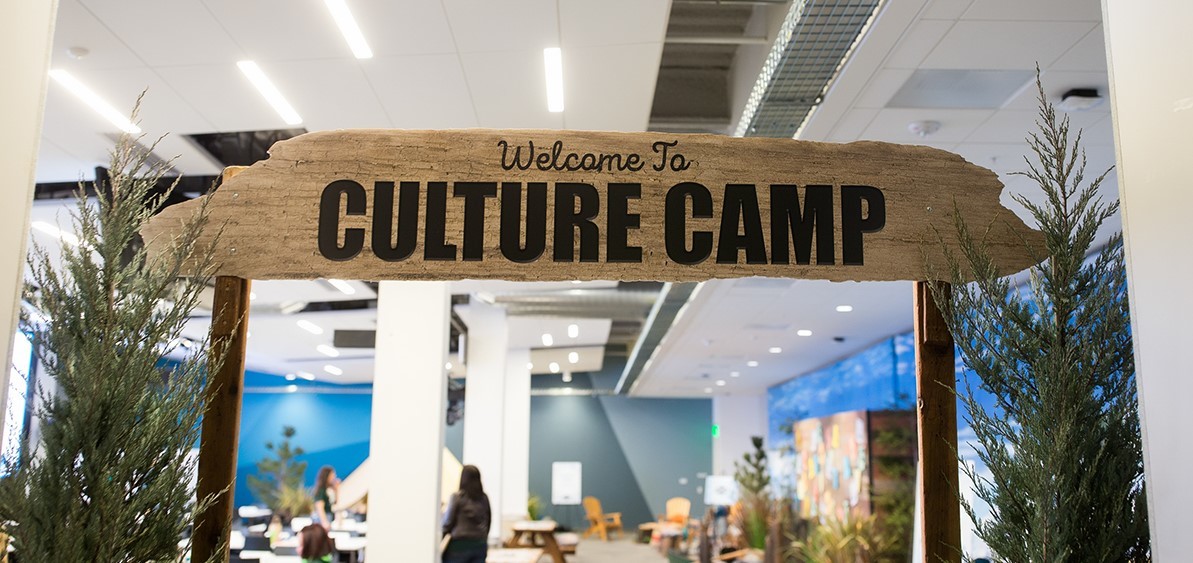Introduction to Summer Camp Culture
Summer camp culture is a vibrant tapestry woven from countless stories, experiences, and traditions. For many children and teens, summer camp represents a rite of passage—a place where friendships blossom, skills are learned, and memories last a lifetime. From the rustic cabins nestled in lush forests to the energetic buzz of sports fields and arts-and-crafts corners, camps offer an escape from everyday life.
In recent years, the blogosphere has become a treasure trove for insights into this unique world. Bloggers share their personal journeys through summer camps—whether as campers themselves or as dedicated counselors navigating the joys and challenges of camp life. This exploration goes beyond mere nostalgia; it captures evolving trends in camping that cater to today’s youth.
Join us on this journey as we delve into what makes summer camp culture so special! We’ll uncover its evolution over time while highlighting benefits for young adventurers along with some hurdles they face today. Plus, hear firsthand perspectives from parents who send their kids off each year with hopeful hearts—and those who have experienced magical transformations along the way!
The Evolution of Summer Camps – From Traditional to Modern
Summer camps have transformed significantly over the decades. Originally, they focused on outdoor activities and rustic living. Campers would gather around campfires, learning skills like canoeing and archery.
As society evolved, so did these experiences. Modern summer camps now blend nature with technology. Activities range from coding classes to robotics workshops alongside traditional crafts.
Diversity is another hallmark of contemporary camps. There are specialized options for every interest—artistic expression, sports training, or wilderness survival—all catering to unique passions.
Health and wellness also play a crucial role today. Many camps emphasize mental well-being through mindfulness practices and team-building exercises.
Additionally, parents seek flexibility in schedules and locations more than ever before. Camps now offer varied lengths from one-week sessions to entire summers filled with enriching experiences tailored for each child’s growth journey.
Benefits of Summer Camp for Children and Teens
Summer camp offers a treasure trove of benefits for children and teens. It serves as a vibrant space where friendships blossom. These connections often last long after the summer sun sets.
Camp encourages independence, allowing kids to explore their interests away from home. They learn decision-making skills while navigating new experiences.
Physical activity is another key aspect. From hiking to swimming, campers engage in fun ways that promote fitness and health without even realizing it.
Creativity flourishes at summer camps too. Art projects, theater performances, and team-building activities spark imagination and self-expression.
Moreover, challenges abound at camp—whether it’s trying out for a play or tackling an obstacle course. Facing these hurdles fosters resilience and confidence in young minds.
Summer camp acts as a unique environment that nurtures growth on multiple levels—socially, emotionally, and physically.
Challenges of Summer Camp Culture
Summer camp culture is vibrant, but it’s not without its challenges. One significant issue is the pressure on campers to fit in. Many children arrive eager for friendship, yet some may struggle with social dynamics. This can lead to feelings of isolation or anxiety.
Another challenge lies in balancing traditional values with modern expectations. Camps often try to blend established activities with new trends, which can create confusion among staff and campers alike.
Moreover, safety concerns have increased dramatically over the years. Parents are more vigilant than ever about their children’s welfare at camps, leading to greater scrutiny and higher standards for supervision and health protocols.
Financial accessibility remains a hurdle for many families. While summer camps offer invaluable experiences, not all parents can afford these enriching opportunities. This gap creates disparities that some communities are striving hard to address.
Perspectives from Parents, Campers, and Counselors
Parents often view summer camp as a rite of passage for their children. They appreciate the independence it fosters. Many share stories of their kids returning home more confident and self-reliant.
Campers have a diverse range of experiences. Some cherish the friendships formed over shared adventures, while others remember evenings spent around the campfire, weaving tales under starlit skies. For many, these moments become lifelong memories.
Counselors play a crucial role in shaping the summer camp experience. They are mentors who guide campers through challenges and celebrate achievements. Their insights reveal how impactful these interactions can be on both sides.
Each perspective adds layers to what summer camp culture truly represents—growth, community, and exploration—but they all converge on one point: an unforgettable journey that leaves lasting impressions long after the season ends.
Popular Bloggers in the Summer Camp Community
The summer camp community thrives with a vibrant array of bloggers. Each brings their unique experiences and insights, creating a rich tapestry of perspectives on camp life.
One standout is Liz from “Campfire Chronicles.” She shares heartfelt stories about her time as a camper and later as a counselor. Her posts resonate deeply with readers looking to reconnect with their childhood memories.
Then there’s Mike from “Adventure Awaits.” He focuses on outdoor skills and activities that make camps memorable. His engaging tutorials inspire both parents and campers to embrace the great outdoors.
Also noteworthy is Jenna over at “Counselor’s Corner.” Her advice for aspiring counselors offers practical tips on leadership, teamwork, and communication—crucial aspects of the camp experience.
These bloggers not only entertain but also foster connections within the summer camp culture blog community. Their voices echo across social media platforms, inviting more into the fold each year.
Tips for Choosing the Right Summer Camp and Making the Most of the Experience
Choosing the right summer camp can feel overwhelming. Start by assessing your child’s interests and personality. Do they thrive in creative environments, or are they more adventurous?
Research various camps thoroughly. Look beyond flashy websites; read reviews from parents and campers to get genuine insights.
Visit potential camps if possible. Meet the staff and see facilities firsthand—it’s essential for gauging safety and environment.
Talk to your child about expectations. Encourage them to express what they want out of their experience, whether it’s making friends or learning new skills.
Packing wisely also makes a difference. Involve your child in packing essentials, ensuring they feel prepared and excited for their stay.
Keep communication open during camp. Regular check-ins can help ease any homesickness while allowing you both to share experiences as the summer unfolds.
The Future of Summer Camp Culture
The future of summer camp culture is poised for transformation. With advancements in technology, camps are integrating digital experiences while still cherishing traditional values. Virtual reality and online programming may become staples, expanding accessibility for remote campers.
Sustainability will also play a crucial role. Camps are increasingly adopting eco-friendly practices, influencing how children connect with nature. This shift not only fosters environmental stewardship but also enhances the outdoor experience.
Diversity and inclusivity will shape the next generation of camps as they strive to welcome all backgrounds. Embracing varied cultures enriches the community and broadens perspectives among campers.
As mental health awareness rises, wellness-focused programs may emerge prominently in summer curriculums. These initiatives could equip young people with valuable coping strategies for life’s challenges ahead.
Summer camp culture will continue evolving while nurturing friendships, independence, and lifelong memories—core elements that define its essence regardless of changing times.
Conclusion
Summer camp culture is a vibrant tapestry woven from the experiences, stories, and traditions of countless campers and counselors. It has evolved significantly over the years, adapting to changing societal needs while still maintaining its core values of friendship, adventure, and personal growth.
The benefits for children and teens are numerous. Camps provide opportunities for socialization, skill development, and a break from technology. However, there are challenges within this culture that cannot be overlooked—such as financial barriers or concerns about safety.
Perspectives shared by parents highlight their hopes for their children’s growth in independence. Campers often reminisce about friendships made during those warm summer months. Counselors offer insights into fostering community spirit among diverse groups.
The blogosphere hosts several influential voices that contribute rich narratives around camp life. These bloggers share tips on everything from selecting the perfect camp to creating lasting memories throughout the experience.
As we look ahead to the future of summer camps, innovation will continue shaping what these experiences entail. A blend of traditional practices with modern techniques promises an exciting evolution in how young people engage with nature and each other.
Embracing all these elements allows us to appreciate just how significant summer camps can be in shaping lives across generations—a culture worth exploring further through every story told in this space dedicated to sharing our collective love for summer camp adventures.




